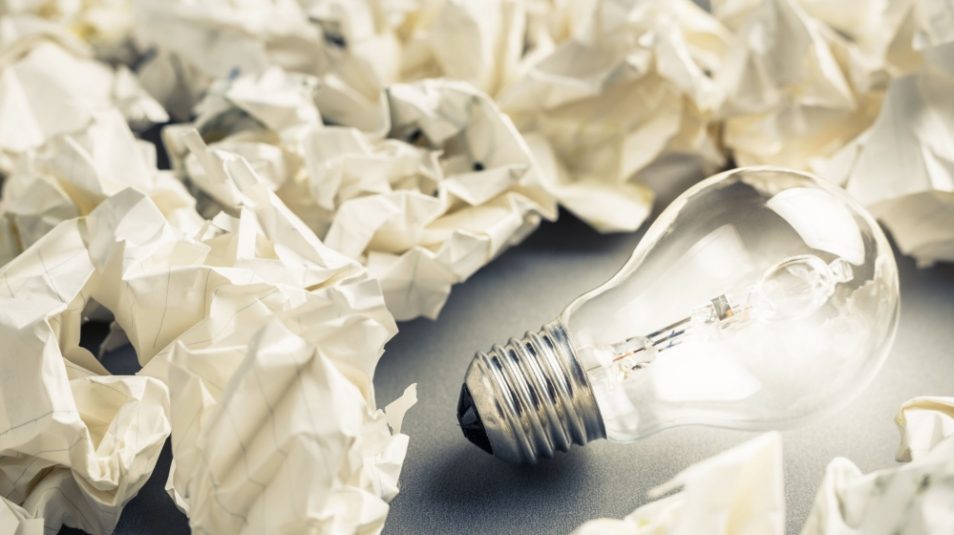Learning through "Failure"

Inspiration, Personal Development
August 31, 2018
Kay Peterson
Topics
action, Learning, mastery, reflection, VisionThere is no innovation and creativity without failure. Period.
- Brene Brown
Everyone experiences failure now and then. What do you do when a poor performance triggers a strong reaction of shame and regret? How can you turn performance failure into learning?
Here are 9 steps to follow:
1. Cling to the belief that you are a capable learner.
Manage any negative self-talk that reinforces a brittle, fixed identity by remembering your ability to learn from experience. By approaching a temporary setback or difficult challenge with this response, you will have the mindset that you need to persist even when times are tough.
2. Control your emotional response.
In order to learn from setbacks, you have to understand your emotional response rather than allowing it to become self-destructive. When failures, losses, and mistakes turn an inner critic into a self-persecutor, it can block learning and feed into a fixed identity. Breath, take a walk, exercise, meditate—do what you need to do to control your emotions rather than letting them control you.
3. Tap your body’s wisdom.
Learning is not merely a mental process; it is also an embodied one. Since our experience in the world is mediated by our body’s sensory-motor system, pay attention to how lived experiences reside in your body. You will benefit from getting a felt sense of the performance failure. Are you feeling “punched in the gut,” “stabbed in the back,” or “deflated”? Try focusing, a technique developed by Eugene Gendlin. In a safe and quiet space, focus attention on your body sensations, especially those that arise when you think about the performance. Choose a word that describes the felt sense, and toggle back and forth between the words and the felt sense, until you feel a sense of release.
4. Reflect, but do not get stuck ruminating.
Reflection cannot occur if emotions are causing upset. Try to become detached and become an observer looking and listening to what you went through. Don’t try to explain the experience at this point; simply take it in and replay it in your mind as vividly as possible. By observing yourself, you will pick up clues about your mindset, beliefs, and assumptions. Go deeper to ask: What is another way of looking at this? What else do I need to consider?
5. Consider the evidence before drawing conclusions.
Gather any evidence that will help you be objective before drawing conclusions that may be clouded with emotion. Get help from someone who can illuminate your blind spots and offer feedback. Only then will you be ready to summarize the various aspects of your experience, and know what action to take.
6. Take action.
You may want to try a new approach, ask a question, or do something that will move you toward a goal. Actions can be big or small, but doing something—to practice or repair—is essential.
7. Pay attention to the process of learning.
Although it may seem paradoxical, when you focus on process rather than outcome, you open yourself up to be more creative and relaxed, allowing yourself to actually perform better and enjoy the activity more. Therefore, if you stick with the process of learning, you will continue to enhance your performance while learning about yourself, too.
8. Frame the learning process over a longer time period.
Learning happens with slow progress over time. In Mastery, George Leonard describes the master’s journey as a path that follows a recurring cycle of brief spurts of progress followed by dips of performance and a plateau of performance that is slightly higher than before, where nothing seems to be happening until the next spurt.
Practice for the sake of practice itself, so that you limit frustration when progress seems slow.
9. Keep your vision alive.
Be aware of the ideal vision that is motivating your performance and learning. Look for a hidden gift in the setback that causes you to refine your vision. According to William James, an idea held firmly in your conscious focus calls forth the behavior you need to make it a reality. We make hundreds of decisions every day on automatic pilot. If you keep your vision in conscious awareness, you will move in the direction of that vision, learning as you go.
Rarely is a single performance a matter of life and death, and to treat it as such only reinforces a fixed identity that will keep you stuck. By viewing yourself as a work in progress instead of a finished product, you will remember that every performance is an occasion for learning.
Success is not final, failure is not fatal: it is the courage to continue that counts.
- Winston Churchill







